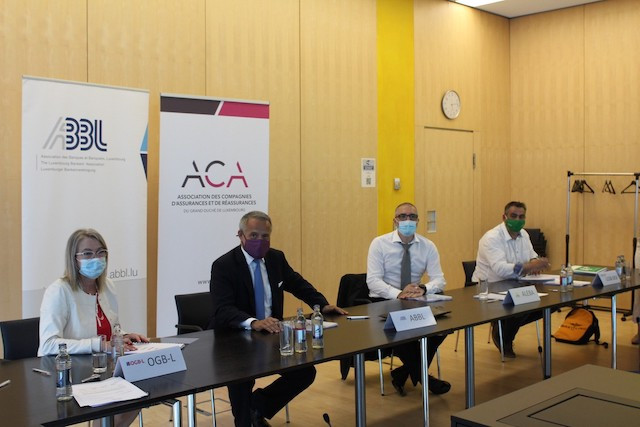To clarify the existing articles in the collective bargaining agreement is to settle the disputes that have accumulated in recent years.
It is now accepted that the 26th day of statutory leave will not be counted against the days of age-related leave. This extra day off, offered by the government in 2019, was for people who only had 25 days off. For the Luxembourg Insurance and Reinsurance Association (ACA) and the Luxembourg bankers’ association (ABBL), because of the extra days of leave already granted in collective agreements, this 26th day was not intended to apply in the financial sector. Unions contested the interpretation. The social partners have also "officially" added 9 May--Europe Day--to the list of public holidays.
False executives on borrowed time
The other big clarification concerns the issue of the status of senior executives, a favourite topic for the labour unions, with Aleba in the lead. It had calculated that in 2018, 27.84% of the workforce in the financial sector were in this situation. That is to say 7,385 employees, often wrongly.
From now on, to be considered a senior manager, four conditions will have to be met simultaneously: having a salary which is significantly higher than that of the employees covered by the collective agreement; exercising real effective decision-making power; and having a wide freedom of working hours, and in particular the absence of constraints in hours. A principle of cumulation recently established by a labour tribunal and which is therefore transcribed in conventional texts.
It is also noted that the framework for disciplinary measures in companies will have to be negotiated with the staff delegation.
Finally, specifically for the banking sector: upon hiring, all employees will receive, in addition to their job description, the weighting thereof. And the jobs of the D function will be clarified.
Other, less controversial questions are explicitly referred to negotiation within companies.
Arrangements to be negotiated in the field
This is particularly the case with the issue of reconciling personal and professional life: banks will have to discuss agreements internally, making it possible to better reconcile work-life balance. Same for insurance, with main discussion points having already been decided: distribution of working time, more flexible arrangement of schedules, time savings accounts and absence for reasons of force majeure. The negotiations will also have to be carried out within one year. And it is specified that "the fact of reconciling family and professional life can in no case have negative consequences on the career development of the employee or be a reason for dismissal".
With regard to psychosocial risks: the parties undertake to improve the prevention of psychosocial risks and the quality of life at work in general. A subject that will also be dealt with in companies with the staff delegation.
The negotiators also looked at securing employment. There is no question here of making social plans illegal. These are the modalities relating to training. The staff delegation will see its powers increased. In particular, it will receive data from people who have not taken any training or only compulsory training in the past three years. And in the banking sector, the delegation will receive details of the training budget actually consumed during the year.
Regarding the organisation of working time, social leave is set at a minimum of five days. The terms of this leave must be defined in each company before the end of the year.
The right to disconnect is also enshrined, but must be adapted to the situation of each company. Its terms are also to be defined through negotiation within the company.
Last point: teleworking. The interprofessional agreement signed on 20 October between UEL, OGBL and LCGB is annexed to the collective bargaining agreements. When teleworking is regular, the directly generated costs will have to be compensated up to €3 per person per month.
This article was originally published in French on Paperjam and has been translated and edited for Delano.
